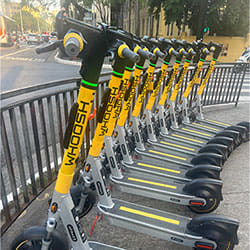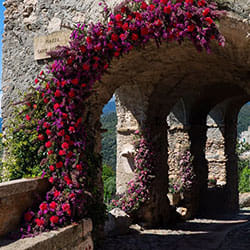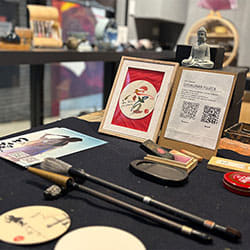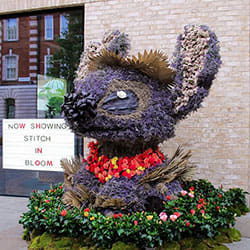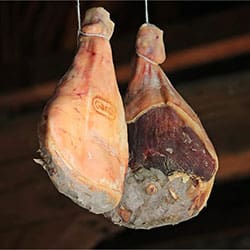Even though Mexican Independence Day falls on September 16, the night of the 15th is really the peak of the festivities. All kinds of shows and events are held in Zócalo, the main square in central Mexico City, starting around 7 PM. Apparently there weren’t any events this year, and they closed off the square to the general public.


The buildings in Plaza del Zócalo are decorated for Independence Day and lit up at night
In a typical year, some 500,000 people gather here from all over Mexico, creating a celebratory atmosphere. People tend to let their guard down in those situations, and a lot of people get pickpocketed or have their bags stolen in the crowds—so you have to be extra careful.
Once the events are over, the president looks out on the Plaza del Zócalo from the National Palace and gives a speech. At 11 PM, the bells ring and he shouts “Viva Mexico!” along with the crowd. It’s a traditional call-and-response they call el grito.
The call-and-response dates back to September 16, 1810, when Father Miguel Hidalgo rang the bells in the town of Dolores, Guanajuato and rallied the people to drive out the Spanish colonists. The cries came to be known as el grito de Dolores.
If you’re not familiar with the historical details, you’re likely to think that Mexican Independence Day is the day that the country actually broke free from Spanish rule—but it’s actually the day when they first declared that they would fight for that independence.
The president recreates the speech originally given by Father Miguel Hidalgo, and my family and I get to see it every year since it’s broadcast live on TV.

The event is broadcast live on TV each year
Mayors in other states also give speeches from government buildings in the Zócalo plazas in their cities and towns.
The celebrations end with a lively fireworks display, which is really gorgeous and impressive even if you just watch it on TV.
Unlike the festivities the night before, Independence Day itself is quiet—though there are military parades through Mexico City in the morning and into the afternoon. They’re massive in scale, with military jets and helicopters flying overhead. Commercial flights are restricted at Mexico City International Airport while the parades are going on.

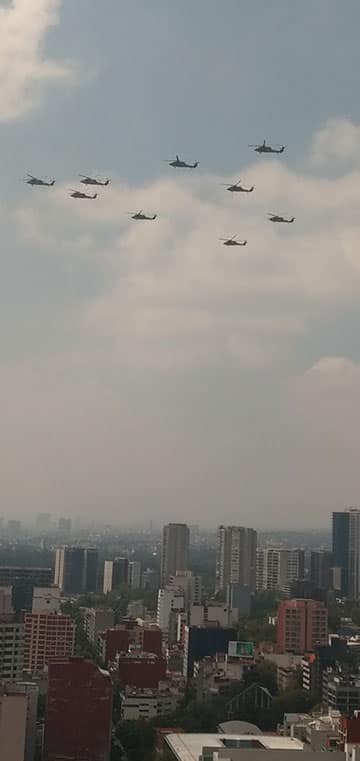
You can’t have Mexican Independence Day without chiles en nogada, a special dish that you can’t get any other time of year. It’s made with large, mild poblano peppers stuffed with meat and topped with a sweet walnut cream sauce and pomegranate. It’s a little like the stuffed bell peppers we make in Japan, but the flavor is unique (and perhaps a bit polarizing) since there are so many ingredients—including fruit and walnut sauce.
Unfortunately we didn’t get to eat it this year, but last year we got to eat some chiles en nogada prepared by friends and by chef my husband knows.

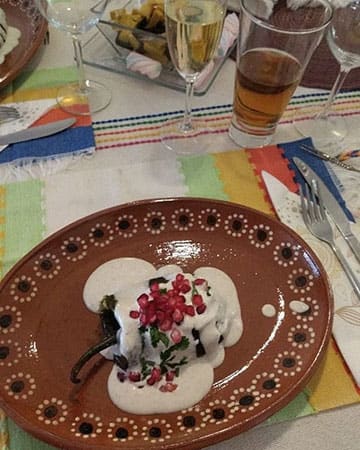
As you can see from the photos, the poblano peppers are green, the walnut sauce is white, and the pomegranate is red—making up the colors of the Mexican flag. I think chiles en nogada is delicious and love eating it. Apparently it’s time-consuming to prepare, and though a lot of families do make it at home, you can also get it at many restaurants. It’s made with so many different ingredients, but most restaurants make it only with major ingredients.
On the day before Independence Day, most children wear traditional Mexican clothing to school and learn and give presentations about the holiday. This year school was online, but my daughter’s kindergarten class still wore the traditional dress and gave presentations about things they studied.
Mexican dress typically has the colors of the national flag, but children in other states sometimes wear different outfits native to their home regions. Last year my daughter wore a T-shirt with the colors of the flag and a skirt, but this year she chose the bright native dress of the state of Jalisco.
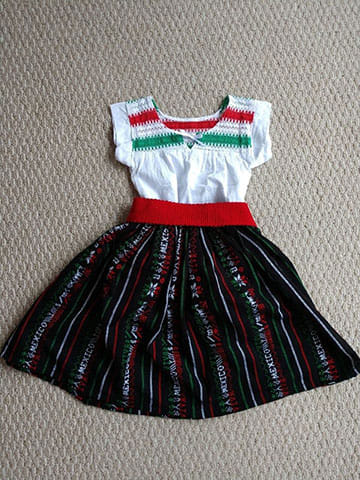
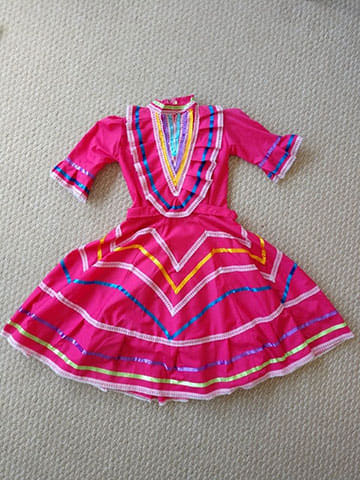
This outfit is one that you often see for sale at street stalls, the Ciudadela Market, and other locations around the city during this time. In addition to clothing and hairpieces, the shops also sell a variety of trinkets and accessories that would make great souvenirs.

Mexico is at its liveliest during the time between Independence Day and Christmas each year, so it’s the perfect time to visit if you’re planning a trip here.










